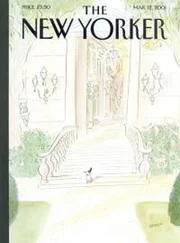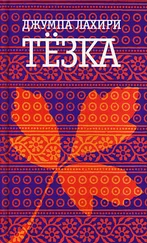He’s arranged books in a lopsided hutch that belongs in a kitchen. The costume jewelry sits on one of the tables, on top of a piece of velvet. Plates and bowls are carefully stacked on the same table. I ask myself: How many meals behind those beaten-up forks and knives? How many bouquets of fresh flowers filled those vases before withering? Every day the merchandise changes slightly as he combs through more layers of stuff. Cheap Deals he’s written on a piece of paper. When I ask how much something costs, he almost always tells me the same price.
In the afternoon, before lunch, he moves all his objects inside, pulls down the grate, and goes somewhere, probably to the beach. The following morning, he’s there again. As I pass by his house I catch a glimpse of the dark, dusty, jumbled source of his little venture.
I say hi to him every day, I pause to look at this and that. I worry that it would seem impolite not to. At the same time, even though he’s the one putting everything on display, I feel hesitant, somehow invasive. I worry about touching his things, I feel strange coveting them, wanting to purchase them.
A painting on canvas, not too big, catches my eye. It’s a portrait of a girl with short, side-parted hair. The portrait is unfinished. There are no shoulders, no bust, instead there’s just the dirty surface of the canvas. The girl seems anxious, she gives me a sidelong glance.
My neighbor—is he the hale and hearty son of the pallid young girl?—is friendly, but he doesn’t pester me. He’s rather indifferent to my curiosity. In any case, since all the stores are closed, I decide to give him some business. One day I buy a couple of drinking glasses. Then, for the same price, I buy a magazine that was sold thirty-three years ago at a newsstand, that was read, perhaps, on a train. I buy a necklace. Then I buy the portrait. The more I buy, the more new things turn up on the tables. In the stark summer desert, this oasis of objects, this ongoing flow of goods, reminds me that everything vanishes, and also reminds me of the banal, stubborn residue of life.
Even though I don’t need any of this stuff, I keep buying things from him. And back at my house, in the mornings, I taste the day’s first coffee from one of those chipped cups. I read the magazine on my balcony and learn all about the actors and gossip and goings-on of another generation. I hang up the portrait and look at that young, timid face. What would have made her happy? Did she grow up to wear that flashy fur coat? Was it hers? Did she like feeling elegant, being admired as she rushed about doing errands in winter under a chilly blue sky?
One day the young man invites me in, he owes me some change. As soon as I set foot in the room I’m uneasy. The life lived in that house overwhelms me. It’s all been hoarded, neglected, ransacked.
Finally I ask, “Who owned these things?”
“My family. And me. I put together all those puzzles. I graduated from high school because I read those books. My mother cooked meals for decades in those pots and pans. My dad played with those cards. He never tossed anything out. When she died he didn’t want to get rid of her things. But this year he died, too, so it’s up to me, otherwise my girlfriend won’t spend the night here.”
And so for very little money my house transforms, and my spartan life perks up a bit. It builds in flavor like a slow-simmering broth, even though the yellowed paper of the magazines makes my eyes water and there are termites in the portrait. It doesn’t bother me, these new acquisitions entertain me, they keep me company. My orphaned neighbor, on the other hand, grows tired of the tedious sale, and maybe also of his only regular client. So one day he shoves it all into a big garbage bin and speeds off to the beach on his motorcycle, with his girlfriend’s arms clasped around him for dear life.
At the Cash Register
The idea of spending money, of buying myself something lovely but unnecessary, has always burdened me. Is it because my father would scrupulously count out his coins, and rub his fingers over every bill before giving me one in case there was another stuck to it? Who hated eating out, who wouldn’t order even a cup of tea in a coffee bar because a box of tea bags in the supermarket cost the same? Was it my parents’ strict tutelage that prompts me to always choose the least-expensive dress, greeting card, dish on the menu? To look at the tag before the item on the rack, the way people look at the descriptions of paintings in a museum before lifting their eyes to the work?
Maybe my father would have liked the bars in my neighborhood, where I can ask for a glass of water filled with bubbles that rise to the top, and sip it slowly while I catch my breath or have a quick chat with someone, without paying a cent.
And yet my father, the only one who earned money in the household, saved up to go to the theater, even springing for decent seats. That money was a type of personal investment for him, something that perhaps kept him sane. My mother, on the other hand, who never worked, and therefore never had any economic independence, always had a twisted relationship to money. I still remember her reproaching me once, years and years ago—I must have been seven or eight—when I wanted a frilly white dress in a store, with short sleeves and a little pearl necklace sewn right around the collar. That detail had enchanted me at the time.
That’s too expensive, don’t even go near it, she’d told me, irritated. And I felt bad, I felt terrible, not so much because I couldn’t have the dress as for having desired something out of reach, for having dared to desire such a thing.
Even more upsetting, a memory from when I was around thirteen. I’d gone out with a younger cousin, and it was my job to keep an eye on her, to be the responsible one. We took a bus into the city—what fun!—to spend the afternoon in a popular, crowded market, and there in the middle of hundreds of booths full of trinkets of every kind I was attracted to a pair of lightweight, dangling earrings: two columns of little plastic pieces, red ones and black ones. Nothing terribly special, but from everything that there was to choose they had caught my eye.
My mother had given me some money and so I’d bought them, satisfied with my purchase, but when I went back home and showed her my new jewelry, my mother, who asked how much I’d spent for them, turned angry, reprimanding me at length, saying, You don’t know how to handle money, no one pays that much for a pair of earrings like these, they cheated you. It was one of her typical rants. And after that I was never able to look at those earrings without hating myself.
And now I’m thinking of another important moment, when I was an adult. My first boyfriend was cleaning his room—the room where we would make love and where I lost my virginity—before moving to a new place. He wanted to get rid of the loose coins scattered and forgotten on the ground, under the bed, below the cushion of the armchair. They’re not worth much, there’s no point in picking them up, he’d said. He’d swept up all those coins along with heaps of dust accumulated for years behind the furniture, and in that moment I understood, with a painful lucidity, that our relationship would have to end.
By now I earn a decent amount and spend money every day without thinking too much about it. But the fear still grips me when I least expect it, if a paperback with an attractive cover catches my eye, or a cheerful plant for the balcony. Objects like this remind me of the red-and-black earrings and paralyze me. That’s why, every now and again, even if I’m dying of hunger, I pick the simplest sandwich, or I don’t eat, period. If I walk into a store, if I admire something but don’t buy it, if I walk out and manage to avoid the cash register, I feel like a virtuous daughter. And if I cave, well, I cave.
Читать дальше
![Джумпа Лахири Whereabouts [calibre] обложка книги](/books/384312/dzhumpa-lahiri-whereabouts-calibre-cover.webp)




![Хелен Виннер - 33 несчастья Алисы [calibre]](/books/384302/helen-vinner-33-neschastya-alisy-calibre-thumb.webp)
![Даниэла Стил - Finding Ashley [calibre]](/books/384308/daniela-stil-finding-ashley-calibre-thumb.webp)
![Аманда Горман - The Hill We Climb [calibre]](/books/384311/amanda-gorman-the-hill-we-climb-calibre-thumb.webp)
![Дэвид Балдаччи - A Gambling Man [calibre]](/books/384314/devid-baldachchi-a-gambling-man-calibre-thumb.webp)
![Джон Ирвинг - Viename asmenyje [calibre]](/books/384315/dzhon-irving-viename-asmenyje-calibre-thumb.webp)
![Джон Ирвинг - Paskutinė naktis Tvisted Riveryje [calibre]](/books/384317/dzhon-irving-paskutine-naktis-tvisted-riveryje-cal-thumb.webp)
![Джон Ирвинг - Pasaulis pagal Garpą [calibre]](/books/384318/dzhon-irving-pasaulis-pagal-garpĄ-calibre-thumb.webp)
![Джон Ирвинг - Našlė vieneriems metams [calibre]](/books/384320/dzhon-irving-naŠle-vieneriems-metams-calibre-thumb.webp)